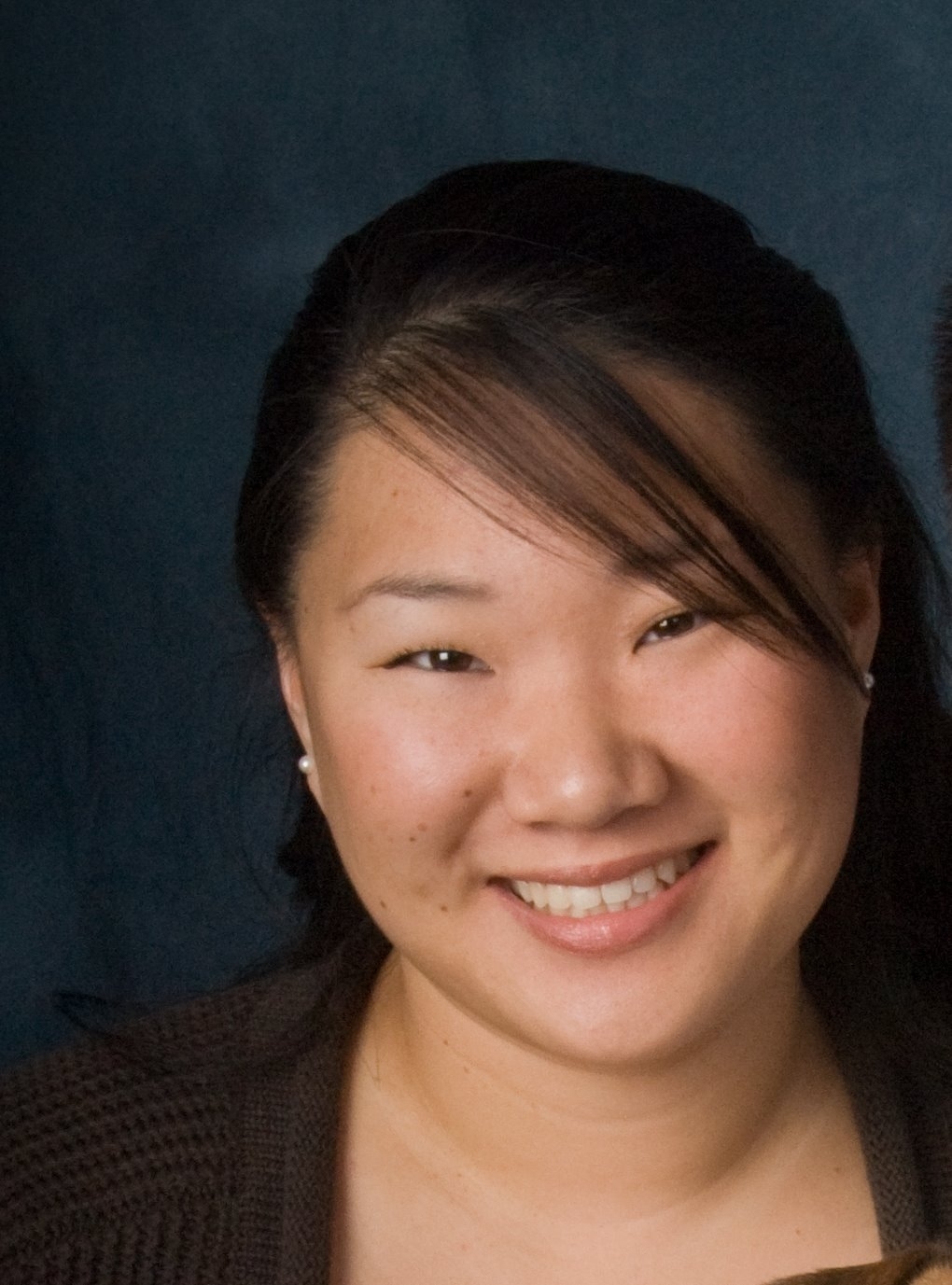A Young Presbyterian’s Reflection on General Assembly
By Emily Morrell, 2012 Young Adult Advisory Delegate (YAAD) View and Print as PDF.
View and Print as PDF.

My presbytery is small, tiny, actually. In fact, after serving on my presbytery’s youth council for four years, with a stint as moderator, I’m pretty sure I know almost every middle school and high school student by sight if not by name. So, when I was asked to serve as my presbytery’s Young Adult Advisory Delegate (YAAD) to the 220th General Assembly of the Presbyterian Church (U.S.A.) in Pittsburgh, PA, I was humbled and honored. Despite my reservations about the efficiency of polity and the nature of parliamentary procedure, my presby-geek self enthusiastically said yes.
However, once I was at the Assembly, my enthusiasm began to wane.
The words that come to mind when I think about the 10 days I spent in Pittsburgh include: frustrating, confusing, contradictory, and impatient, with maybe a little bit of hope thrown in at the end. An overwhelming part of the experience made me want to pack my bags and say good riddance to the church altogether. Ironically, however, my time in Pittsburgh made me so mad and hurt that I feel like I don’t have any choice but to stick around and try to change things.
Here’s my frustration: I simply don’t understand how a church, whose message is one of love, compassion, and justice, can ignore those noble, albeit challenging, callings and remain painfully stagnant. People wonder why young people stray from the church, and those ten days were a perfect example of the explanation: we, the young people of the church, feel inferior, unwelcome, like the church is an outdated institution too far gone for our involvement. And the problem is, the church is proving them right.
___________________________________________
People wonder why young people stray from the church, and those ten days were a perfect example of the explanation: we, the young people of the church, feel inferior, unwelcome, like the church is an outdated institution too far gone for our involvement.
___________________________________________
I know that there are many Presbyterians—and ministries—that witness to the kind of church youth are seeking. The problem is that General Assembly, with some notable exceptions, was not one of those witnesses.
It makes me sick to my stomach knowing—and witnessing firsthand—the conflict that exists within our denomination, and the effect it has on others: on faithful people (Presbyterians or not) who feel abandoned by sisters and brothers in faith who claim that they want to send aid and help in any way they can, but refuse to take a proactive step to effect change and better the lives of suffering people; on wonderful, loving couples who aren’t allowed to get married in a church surrounded by their friends and family; on pastors who (and I pray that I am never met with this decision) must choose to follow either the Book of Order’s instruction to “serv[e] the people with intelligence, imagination, and love…showing the love and justice of Jesus Christ” or its requirement that we “be governed by our Church’s polity and abid[e] by its discipline.” I know which one I would choose (at least I like to think I do), and to think that such a decision is one that could provoke such threatening, hurtful comments as to cause someone to resign their position as Vice Moderator of the PC(USA) General Assembly is baffling, if not appalling.[i]
I can’t imagine how the Palestinians feel who are aching for help and pleading for divestment, yet are met with complacent “positive investment”. I can’t imagine what must be going through those couples’ minds that asked for the right to seal their love in the covenantal bonds of marriage but were answered by the formation of another committee, instead of a proactive move toward equality and justice. I can’t imagine the conflict within those pastors who are torn between the pastoral tendencies of their hearts and the government of a church they serve so passionately.
But those decisions that caused me and many others so much disappointment and grief, you say, were the will of the body! Business and debate were decent and in order. Everyone had their fair say. Everyone had the chance to speak their peace and make their case. Everyone had a voice. Robert’s Rules, after all, have been utilized by the Church for over 100 years, and thus far they seem to be doing a fine job of getting business done efficiently and with the appropriate air of civility and respect.
___________________________________________
Ironically, my time in Pittsburgh made me so mad and hurt that I feel like I don’t have any choice but to stick around and try to change things.
___________________________________________
And to be honest, I was impressed with the process and the polity. But I was disappointed in the way (as I see it) it was used and manipulated—on both sides. Minority reports, for instance, supplanted several committees’ carefully deliberated majority reports, which then received no direct consideration on the floor. The YAAD advisory vote was disregarded in several critical decisions such as divestment and the change in the language of the definition of marriage. Personal agendas were allowed to stifle other voices in the room. That manipulation, it seemed to me, also came from those with the most experience in parliamentary procedure, while everyone else sat by, either too uncomfortable from the tension or too intimidated by this complex system to speak up. We YAADs, in fact, had commissioners asking us about motions, overtures, and procedure—and yet, they were the ones with the voting power, not us. It seems to me that a church shouldn’t govern with a system so foreign to those utilizing it that they feel uncomfortable putting forth potentially valid, enlightening ideas because they are intimidated by the very system to which they adhere.
On the plenary floor, I quickly realized: this is not a discussion. Instead of talking to and with one another, comments are directed to a third party: the moderator. I understand that the intention is to avoid heated arguments and accusations, but eventually “debate” simply turns into a shouting match. And instead of discussing the core principles under consideration, we spent hours deliberating on how we should limit debate times or redress miniscule flaws in amendments, substitutions, or overtures. By the time we had discussed all of these parliamentary details, many people were simply too tired for a real conversation.
All of that said, I did come away from General Assembly with some measure of hope. The YAADs demonstrated a profound spirit of community and a relentless faith in the Holy Spirit’s guidance of the Assembly. While debating the definition of marriage, a group of YAADs consistently gathered at the microphone in order to share our perspectives. Some of these youth were tweaking and coordinating what they wanted to say; some were praying; others were encouraging one another or simply standing together with their arms around one another’s shoulders. I’m extremely proud to say that I took part in that public display of community.
Obviously not all of the YAADs were on the same side of the argument, but we encouraged and congratulated everyone for speaking up and taking a stand. We didn’t ostracize or pressure anyone based on the way they voted. Instead, we did energizers during breaks and sang and laughed with one another. Commissioners looked at us with nostalgic, appreciative smiles (a few actually joined in our craziness), but there was a sense that they were thinking we were simply naïve kids who hadn’t yet learned the truths of the real world. Maybe they were right. Maybe one day we’ll wake up and decide we’ve had enough of conversation and community and refuse to hear what the other side has to say. Maybe we’ll discover that the world isn’t worth trying to change. Maybe we’ll give up. But, God, I hope not.
___________________________________________
Commissioners looked at us with nostalgic, appreciative smiles, but there was a sense that they were thinking we were simply naïve kids who hadn’t yet learned the truths of the real world. Maybe they were right. Maybe one day we’ll wake up and decide we’ve had enough of conversation and community and refuse to hear what the other side has to say…
But, God, I hope not.
___________________________________________
For, I’m convinced that the spirit of love and community is just as contagious as that of fear and intimidation, if not more so.
I know that change is possible and that it’s coming. Eventually, if we stick around (and that’s a big if), we young people will be leading the church. I am beyond grateful for the adults in the church who are working toward that change with passion and determination. And, I know that some people really do listen to the voice of the youth, even if we often feel ignored. I realize that the Spirit is ever present in this church we love so much, and I pray that She sticks around and finds a way to hold us together. It’s just sometimes I want the change to be now: Haven’t we waited long enough? Maybe that’s just me being impatient, but two or four years seem like such a long time to wait for a church that needs as much love and acceptance as she can get, and the sooner the better
Of course at some point the argument arises that what some see as love and acceptance others see as blatant denial of the teachings of God, and thus a schism arises that can’t be breached simply by a kind, encouraging word. We are then faced with the terrifying question: What if this divisiveness, these heartbreaking arguments, never end? What if our beloved Church, despite the efforts of so many wonderful, faithful people, can’t find a way to break down the wall that divides us? Then what?
That question terrifies me to a degree that I cannot articulate. So, for now, my solution comes in the form of a constant, desperate prayer; a prayer that I’ve read over and over again in Sunday school and lectionary readings but which only recently became relevant when I received a letter from a friend/mentor/pastor. He wrote of a piece of dialogue in the twenty-fourth chapter of the Gospel of Luke, when Cleopas and a nameless disciple encounter the Savior of the world on the road to Emmaus. Of course they have no idea it’s Jesus they’ve been talking with, but there is a burning in their hearts nonetheless. Their souls are stirred and, as Jesus begins to move on, they stop him and ask him to “stay”. “Stay with us for the day is nearly over.” Such a simple, beautiful, poignant request: stay with us, Lord Jesus, stay with us through our differences and arguments; remain firmly planted in our hearts. Stir our souls. Make us take note of your presence, for surely this day of frustration and conflict and division is nearly over. May it be so.
Amen.
See more articles like this one from the Oct 2012 issue, “The Backstory of General Assembly”
Notes
[i] The precise nature of the comments made to the Vice Moderator candidate is not clear. Some have questioned whether the comments were in fact hateful. See this article in The Presbyterian Outlook: http://www.pres-outlook.com/pcusa-reports/ga-2012/16996-whats-fair-how-far-should-criticism-go-presa-and-mccabe-hold-town-hall-.html. All that really matters, however, is that Rev. McCabe felt attacked. That alone should warrant our concern.
Author Bio: Emily Morrell is a 19 year old college freshman from a small, southern town in east Tennessee who loves Montreat… as well as hiking, rafting, and dancing down the isles of grocery stores. She is a self-designated “presby-geek” to her core: an ordained elder who has helped coordinate mission trips, served on my presbytery’s youth council (with a stint as moderator), served on planning teams for youth conferences, and the list goes on… At some point in her future, she hopes to attend seminary and perhaps work with youth and young adults, but for now she says she is content with being a religion major, walking in love, and reading as many good books as she can get her hands on.






Unbound Social